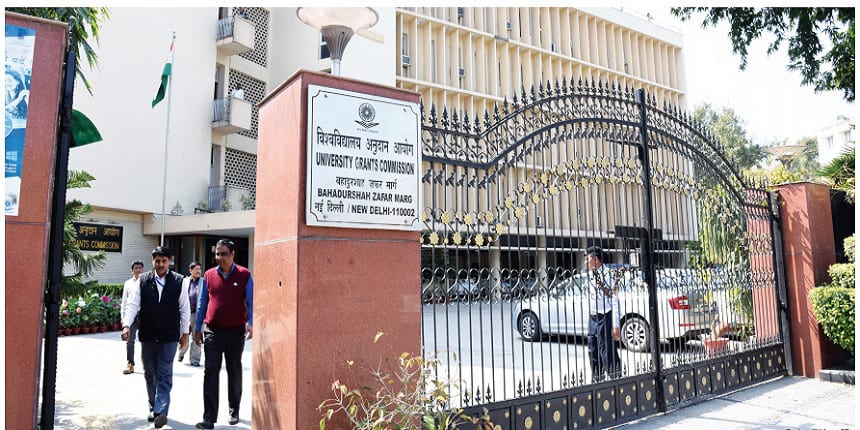UGC finalises guidelines on credit-based course, learning, teaching differently abled, SLDs
R. Radhika | September 7, 2023 | 03:24 PM IST | 2 mins read
The UGC guidelines set a framework for teaching Divyangjan in colleges and universities, covering courses, pedagogy, and evaluation.

NEW DELHI: For seamless integration of persons with disability under the National Education Policy (NEP 2020) reforms, the University Grants Commission (UGC) has finalised guidelines covering credit system, learning styles, inclusive pedagogy and flexible choice in subjects.
The higher education regulator’s final guidelines for Credit Based Courses on Pedagogical Aspects for Teaching Divyangjan at Higher Education Institutions (HEIs) direct universities to provide effective support required for identifying the specific needs of a student with disability. The commission reiterated that the NEP 2020 emphasises on equity and inclusion in all educational decisions to ensure that all students are able to thrive in the education system.
The guidelines emphasise on providing support for different learning styles – visual, auditory, tactile and kinesthetic. For instance, “learning will be facilitated through Braille, alternative script, augmentative and alternative modes, means and formats of communication, orientation, and mobility skills, by facilitating peer support and mentoring”, the policy states.
UGC Guidelines: Courses, evaluation
As per the National Higher Education Qualifications Framework (NHEQF), students with disabilities will be provided flexibility in the selection of core, elective, and skill-based courses to students with disabilities to bring them to par with their peer group.
The guidelines further direct adoption of evaluation by attaching credits to components such as course load, learning outcomes, and contact hours for teaching and learning depending on the specific disability of a student. Along with registering with the Academic Bank of Credit (ABC), the guidelines recommend evaluation as per the unique need of students with disabilities. Additional tests, assignments, projects or a multi-stage evaluation as per requirements of students has been suggested in the guidelines.
To ensure all disabilities are taken in account, the guidelines also list specific disability needs in each category as per the Rights of Persons with Disabilities (RPwD) Act, 2016, and accordingly, provisions support through assistive devices in higher education.
In addition to learning, the guidelines also direct educational institutions to provide opportunities to do work-based learning or apprenticeship to persons with disabilities. The regulator has also directed educational institutions to introduce recent technology and pedagogy for enhancing accessibility of students with disabilities.
Follow us for the latest education news on colleges and universities, admission, courses, exams, research, education policies, study abroad and more..
To get in touch, write to us at news@careers360.com.